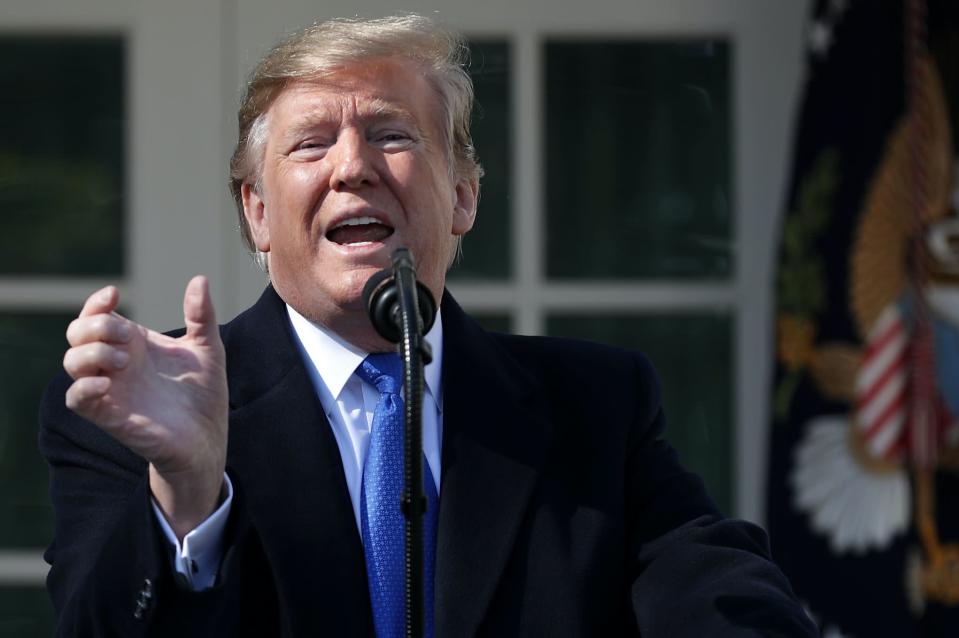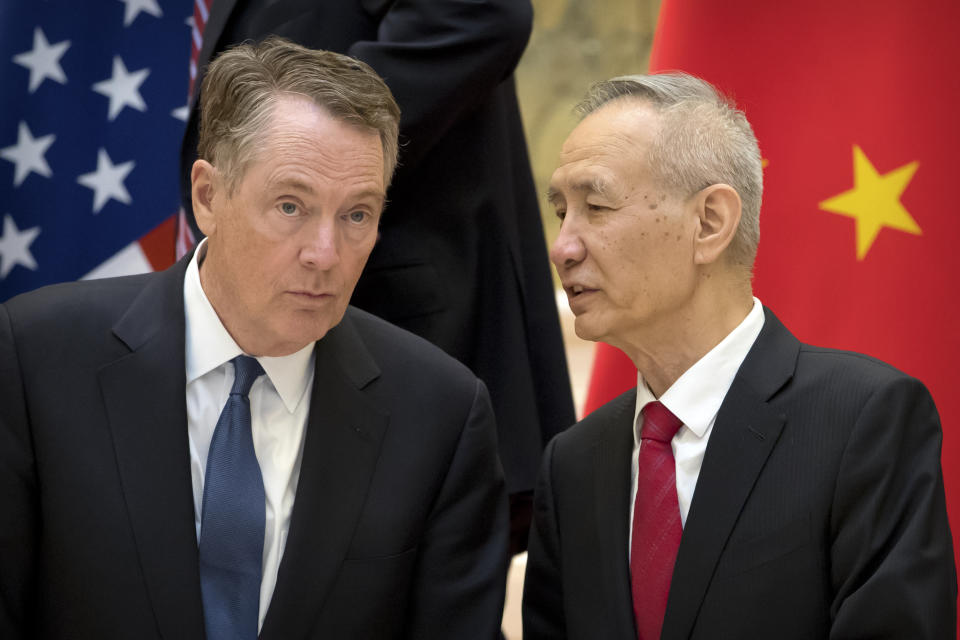A U.S.-China trade deal by March 1 deadline is 'really far-fetched': Strategist
The ongoing trade war is on the minds of many as a new round of high-level negotiations between the U.S. and China commence on Thursday.
Greg Valliere, chief U.S. policy strategist at AGF Investments, is skeptical that a deal will be reached by the stated deadline.
“The idea we could get a deal done by March 1 or 2 is really far-fetched,” Valliere told Yahoo Finance’s The First Trade. “Maybe people have gotten a little ahead of themselves.”

On February 15, President Trump said that the negotiations are “very complicated,” adding there’s a chance he will extend the deadline while keeping existing tariffs in place.
“There is a possibility that I will extend the date,” he said. “But if I do that, if I see that we’re close to a deal or the deal is going in the right direction, I would do that at the same tariffs that we’re charging now. I would not increase the tariffs.”
On Tuesday, Trump added that March 1 “is not a magical date. A lot of things can happen."
U.S. tariffs on $200 billion worth of Chinese imports are scheduled to go from 10% to 25% if no deal is reached by the March 1 deadline.
‘We’re getting there but we’re not there yet’
The White House says that the latest meetings are aimed at “achieving needed structural changes in China that affect trade between the United States and China. The two sides will also discuss China’s pledge to purchase a substantial amount of goods and services from the United States,” according to a February 18 statement.
On the U.S. side, Robert Lighthizer will be leading negotiations alongside Treasury Secretary Steve Mnuchin. Vice Premier Liu He will be representing China’s side. Lighthizer has previously argued that China has practiced “unfair, unreasonable, and market-distorting practices” that led to the U.S. tariffs to begin with.

Signs of a deal looked promising in December 2018, when China made a show of good faith by agreeing to resume buying agricultural products from American farmers. This came as a result of talks during the G20 Summit in Argentina between the U.S. and China.
Since then, however, there have been no major breakthroughs in these talks between the two largest economies.
“I think Trump and [Chinese leader Xi Jinping] want some big, climactic, made-for-TV extravaganza when they actually do cut a deal sometime in the spring,” Valliere said. “So, I think we extend the deadline of March 1. We’re getting there, but we’re not there yet.”
Adriana is an associate editor for Yahoo Finance. Follow her on Twitter @adrianambells.
READ MORE:
The growing U.S. soybean stockpile could come back to haunt Trump
U.S. soybean farmer: 'We obviously are struggling' amid U.S.-China trade war
Follow Yahoo Finance on Twitter, Facebook, Instagram, Flipboard, LinkedIn, YouTube, and reddit.
